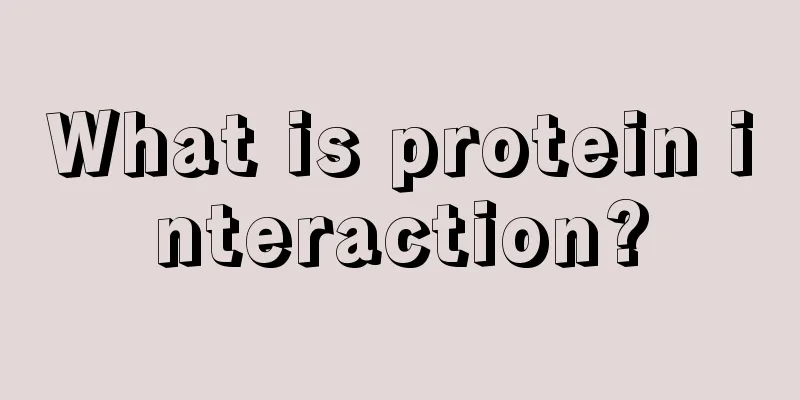What is protein interaction?

|
Protein is an important concept in life, because food is full of protein, and the human body needs a lot of protein every day to maintain life. With the advancement of modern science and technology, people's research on protein is becoming more and more in-depth, and microscopic protein research results have emerged. For example, studying protein interaction is a relatively important topic. Let's take a look at what protein interaction is. Protein-protein interaction refers to the process in which two or more protein molecules form a protein complex through non-covalent bonds.Protein-protein interactions constitute a major component of the cellular biochemical reaction network and are of great significance in regulating cells and their signals. Protein interaction studies can be divided into two categories according to the experimental purpose: one is to verify whether there is an interaction between two proteins, and the other is to screen for interacting proteins of a protein of interest.
(1) The nature of the probe protein and the source of the interacting protein: The nature of the probe protein: it can be a full-length protein, an interaction-related domain, or even a smaller biologically active fragment synthesized by chemical synthesis. Sources of interacting proteins: Cell lines that are known to endogenously express the probe protein are ideal experimental materials for searching for proteins that interact with it. (2) Preparation of cell lysates: The key factors for the successful preparation of crude cell extracts include: cell lysis method; pH control; temperature; and avoiding protein degradation. These all require multiple repetitions in preliminary experiments to optimize cell lysis conditions. It is sometimes not necessary to disrupt cells to extract recombinant proteins. For example, many high-expressing mammalian cell lines (especially Chinese hamster ovary cells, CHO cells) and yeast cell lines have been engineered to secrete recombinant proteins, making it possible to purify recombinant proteins directly from cell-conditioned medium and culture filtrate. It is important to concentrate large volumes of cell-conditioned media as quickly as possible to obtain a “protease-free environment” using these methods. |
<<: Is contact with silver washing water harmful to the body?
>>: What do hens eat to make them lay eggs easily?
Recommend
What tests should be done if lung cancer is suspected? 6 tests that must be done to screen for lung cancer
1. Chest X-ray can be used as a routine method fo...
The first choice drug for treating colorectal cancer
Many colorectal cancer patients have this questio...
What medicine should I take for back and leg pain
Low back and leg pain is a very common symptom. T...
What medicine should I take after gastric cancer surgery? There are several kinds of medicines
Total gastrectomy is basically self-medication. F...
Early symptoms of melanoma nails
The early symptoms of melanoma nails are usually ...
Can brain cancer cause palpitations?
Common symptoms of brain cancer include headaches...
What is non-keratinizing nasopharyngeal carcinoma and how can it be treated?
Nasopharyngeal carcinoma can be divided into many...
What's the matter with occult blood in urine test?
When occult blood is found in the urine during a ...
Debunking 9 Diet “Rumors”
There are a lot of health rumors flying around th...
What to eat for gastritis
Gastritis is classified into two categories, name...
How to prevent and care for the sequelae of tonsil surgery?
Tonsils are a type of tissue in people's thro...
What are the ways of transmission of rabies virus?
Rabies is a vicious virus that has never been era...
Self-care for gastric cancer patients
Gastric cancer is a disease that not only harms t...
What to do if there is fat on the liver
When the fat on the liver reaches a certain level...
Aftereffects of lens replacement
As people age, their physical functions gradually...









